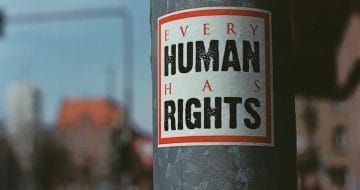SQE student Sophie Binks analyses last week’s high-profile ruling

On 9 April 2024, the Grand Chamber of the European Court of Human Rights (the Court) handed down a landmark judgment which ruled that Switzerland’s climate inaction has breached human rights. This decision from an international court is the first of its kind and is likely to set a precedent for future climate complaints.
Verein KlimaSeniorinnen Schweiz and Others v Switzerland
The case was bought by Swiss association, Verein KlimaSeniorinnen Schweiz, who represent over 2,500 Swiss women aged 64 and over. The women claimed that weak Swiss policies have put them at greater risk of dying from heatwaves. They argued that, despite their obligations under the European Convention on Human Rights (the Convention), Swiss authorities are not doing enough to protect them from the effects of climate change.
Held by a majority of sixteen to one, the Court found that there had been a violation of Article 8 (the right to respect for private and family life). The Court determined that Article 8 extends to encompass the right to effective protection by State authorities against the adverse effects of climate change on health and quality of life. Regarding Switzerland, it was held that there are critical gaps in the implementation process of regulatory framework. Furthermore, Switzerland has previously failed to meet emission reduction targets, and by failing to implement relevant legislation to help meet these goals, Article 8 had been breached. The Court unanimously found that Article 1 and Article 6 had also been breached.
Unfortunately, it was not victorious for all climate-concerned claimants in Strasbourg on Tuesday. The Court declared that two other cases, one bought by a French mayor against France and the other a group of young Portuguese people against 32 European countries, were inadmissible. The reasons for this being that as the mayor no longer lived in France, he did not have victim status, and that the Portuguese applicants had not exhausted all domestic remedies. Despite the cases being thrown out, this did not dishearten the 19 year old Portuguese applicant, Sofia Oliveira, who said that “[the Swiss] win is a win for us, too… And a win for everyone”.
Want to write for the Legal Cheek Journal?
Find out moreWhat the ruling means for Switzerland
When the Court finds a breach of the Convention, Article 46 requires the State in breach to select general and/or individual measures to be adopted in its domestic legal in order to put an end to the violation.
However, the Court decided that due to the complexity and nature of the issues involved, the Swiss Confederation, with the assistance of the Committee of Ministers of the Council of Europe (the Council of Europe’s statutory decision-making body), would be in a better position than the Court to evaluate the specific measures needed.
If Switzerland does not update its policies, this could result in further national litigation seeing Switzerland face potential future financial penalties, as noted by Lucy Maxwell, co-founder of the non-profit Climate Litigation Network.
The wider impact of the ruling
This judgment serves as a warning to the governments of the 46 Member States of the Council of Europe. A precedent that it is possible to sue your government over its inaction around climate policies, and, most importantly, that it is possible to win, has now been set. Ruth Delbaere, a legal specialist at Avaaz, a US-based non-profit that promotes climate activism, calls this a “blueprint for how to successfully sue your own government over climate failures”.
In the UK, the High Court have previously considered whether human rights have been breached in a climate related claim. ClientEarth, an international environmental charity, filed an action in 2021 which examined whether the government’s net-zero strategy was lawful. It was held that the strategy was unlawful, and that the government need to provide greater clarity and transparency on how the net-zero target will be met.
Within its examination, the High Court considered a 2019 ruling by the Supreme Court of the Netherlands which held that the Dutch government was breaching Article 2 and Article 8 of the Convention by failing to pursue a more ambitious greenhouse gas target. Ultimately, the UK High Court dismissed the human rights aspect of ClientEarth’s claim because it felt that the Dutch ruling went further than the case law of the European Court of Human Rights at the time, and thus had no bearing on the application national law.
Following the outcome last week, the European Court of Human Rights has now ruled further on the impact on human rights due to climate inaction than it has done before. All 46 Member States have therefore been exposed to the possibility of having similar cases bought against them. Therefore, it is likely that the floodgates have been opened and we will be seeing a lot more governments being held accountable for their climate inaction.
Sophie Binks is studying for the SQE at the University of Law (Birmingham), and her interests are human rights, family and environmental law.
 (
( (
(

